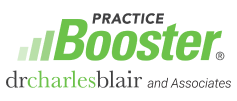As dental professionals, you are dedicated to providing the best possible care to your patients; however, ensuring that your practice receives fair and timely reimbursement for services rendered is equally important. Dental claim reimbursement is vital to the success of a dental practice, and understanding the ins and outs of the process can make a significant difference. In this blog post, we’ll explore tricks and treats to help you BOO-st your dental claim reimbursement.
Trick: Elusive dental billing guidelines
As we know, dental insurance policies are not static; they evolve and change over time. To maximize dental claim reimbursement, dental professionals must stay updated on the latest changes in insurance policies, coverage limits, and documentation requirements.
Treat: Delightful dental claim resources
One of the most effective ways to BOO-st your dental claim reimbursement is to invest in staff education and resources. Your front office staff and billing personnel should be well-versed in the intricacies of dental administration. Regularly review the policies of the major dental insurance payors your practice works with, and get a print or ebook copy of Dental Administration with Confidence to ensure you are accurately billing for services and following the latest guidelines.
Trick: Ghostly dental claim information
A common reason for dental claim denials is inaccurate patient information. In fact, nearly 75% of dental claims are denied for administrative reasons. After appealing these claims, only about 8% are denied due to clinical insufficiency.
Treat: Devilishly accurate dental claims
Set your staff up for success and get them the support they need to verify patient details, including name, date of birth, insurance policy number, and contact information. This step seems simple, but it can easily be overlooked when the administrative staff is overwhelmed. When completed, this can prevent claim rejections and save your practice valuable time and resources.
Trick: Mysterious CDT codes on dental claims
Optimized dental claim reimbursement relies heavily on dental coding knowledge. Properly coded claims are more likely to be processed quickly and accurately. Stay up-to-date with the Current Dental Terminology (CDT) codes and use them correctly when submitting claims. Avoid using unspecified codes whenever possible, as they can lead to claim denials.
Treat: Chocolate-dipped dental coding best practices
Stay up-to-date with the Current Dental Terminology (CDT) codes and use them confidently when submitting dental claims. Practice Booster’s catalog of resources, including the most comprehensive CDT code database in the industry, are the resources (and e-resources) your practice needs to maximize reimbursement and minimize risk.
Trick: Dental claim appeals
When a dental claim is denied, it’s not always the end of the road. Dental professionals have the option to appeal denied claims, but the majority do not. In fact, only 33% of denied dental claims are appealed.
Treat: Spooky dental claim optimization
Carefully review the reason for the dental claim denial, gather supporting documentation, and follow the appeal process outlined by the insurance payor. A well-documented and well-reasoned appeal can often lead to successful dental claim reimbursement. Check out Mastering Dental Documentation for a power-packed presentation from Practice Booster’s Senior Advisor, Dr. Greg Grobmyer, on documentation best practices.
What do a dental claim and a haunted house have in common?
Optimizing dental claim reimbursement is a multifaceted process that requires diligence, attention to detail, and a commitment to ongoing education. By staying informed, getting your staff the proper resources to code accurately, and appealing denied claims, you can feel confident that your practice is receiving the maximum reimbursement for the care you provide. With the added treat of greater patient satisfaction and loyalty.


0 Comments